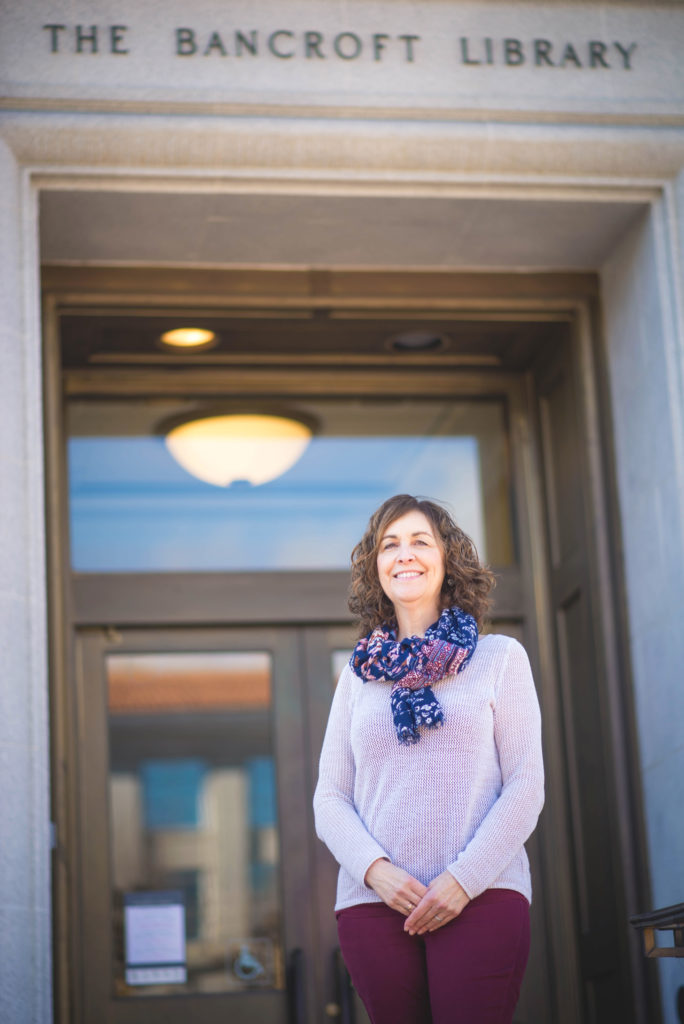Van den Hout, a 2015 graduate from Berkeley, has been a Digital Humanities Project Archivist at the Bancroft since October 2016. Julie came to Berkeley having discovered her passion for historical research after working for some years in health care. Her honors thesis explored a 17th-century Dutch book aimed at potential immigrants to what is now New York; it was awarded the Charlene Conrad Liebau Library Prize for Undergraduate Research (honorable mention).

What inspires you about your position?
It has been an honor to work with the Engel Sluiter Historical Documents Collection. This immense personal research collection, donated to the Bancroft Library, is truly a legacy of Dr. Sluiter’s life work as a UC Berkeley Latin American History professor and researcher. By bringing together materials from archives worldwide, the collection provides detailed Spanish, Dutch, English, and Portuguese perspectives on sixteenth and seventeenth century Atlantic trade. Through a UC Berkeley Digital Humanities Collaborative Research grant, Dutch Studies and the Bancroft Library are working together to digitize a small subset of the collection on the seventeenth century colony of New Netherland (now New York), and then analyze the texts using natural language processing. Working with the primary sources in the Engel Sluiter Collection has taught me much more than I could ever learn in a classroom. I am excited about the capabilities of digital humanities, and what our current project will reveal about the Dutch colony.
Your priorities over the next 6-9 months
My overarching and ultimate goal with the project is to enhance search capabilities for the Engel Sluiter Collection, and help make these impressive, but relatively unexplored, materials more accessible to researchers. My immediate focus is to reconcile the Dutch documents with the digitized OCR outputs, in preparation for processing using our in-house topic modeling application that will identify themes within the corpus. The documents will be then be published online, with the new search capabilities freely available to researchers worldwide. At the same time, I will be working to learn more about the potential of digital humanities and applying our model to other historical texts.
Opportunities at the Berkeley campus and the Library
The libraries of UC Berkeley are a treasure trove of primary and secondary sources for study of the Atlantic World. Being at a research institution is a great way to find support for new ideas, and digital humanities at UC Berkeley is at the cutting edge in its field. While some people see digital humanities as trying to replace traditional scholarship, I see it as being able to enhance and partner with traditional scholarship to add new dimensions or perspectives. In our project, for example, the use of technology is helping us find connections in the historical data and texts that may not readily visible in traditional formats.
A favorite book or favorite campus hangout
My favorite book is Two Years Before the Mast, by Richard Henry Dana, Jr., Dana’s own memoir of two years spent, as an ordinary sailor, on a merchant ship between Massachusetts and California around Cape Horn, in the early 1800’s. Long before I became interested in academic history, Dana’s engaging accounts of life at sea and trading hides along the Pacific Coast brought the past to life for me. His descriptions of colorful, pre-gold rush Mexican California opened my eyes to a California I had never learned in history books.